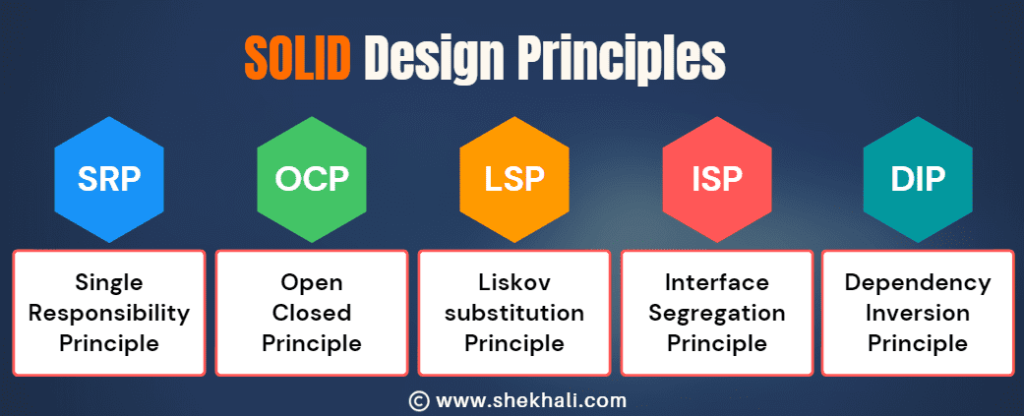In this article, We will explore the Singleton design pattern in C#, its use cases, and various ways to implement singleton class.

In this article, We will explore the Singleton design pattern in C#, its use cases, and various ways to implement singleton class.

SOLID is a set of five design principles introduced by Robert C. Martin in 2000 to make code more maintainable, flexible, and scalable.
In this article, we will learn about five important SOLID principles and how they can be used with C# programming. We’ll also see practical examples to understand how to apply these principles in real-world situations.
SOLID is a widely recognized acronym that represents a set of five fundamental design principles in software development: the Single Responsibility Principle, Open-Closed Principle, Liskov Substitution Principle, Interface Segregation Principle, and Dependency Inversion Principle.
